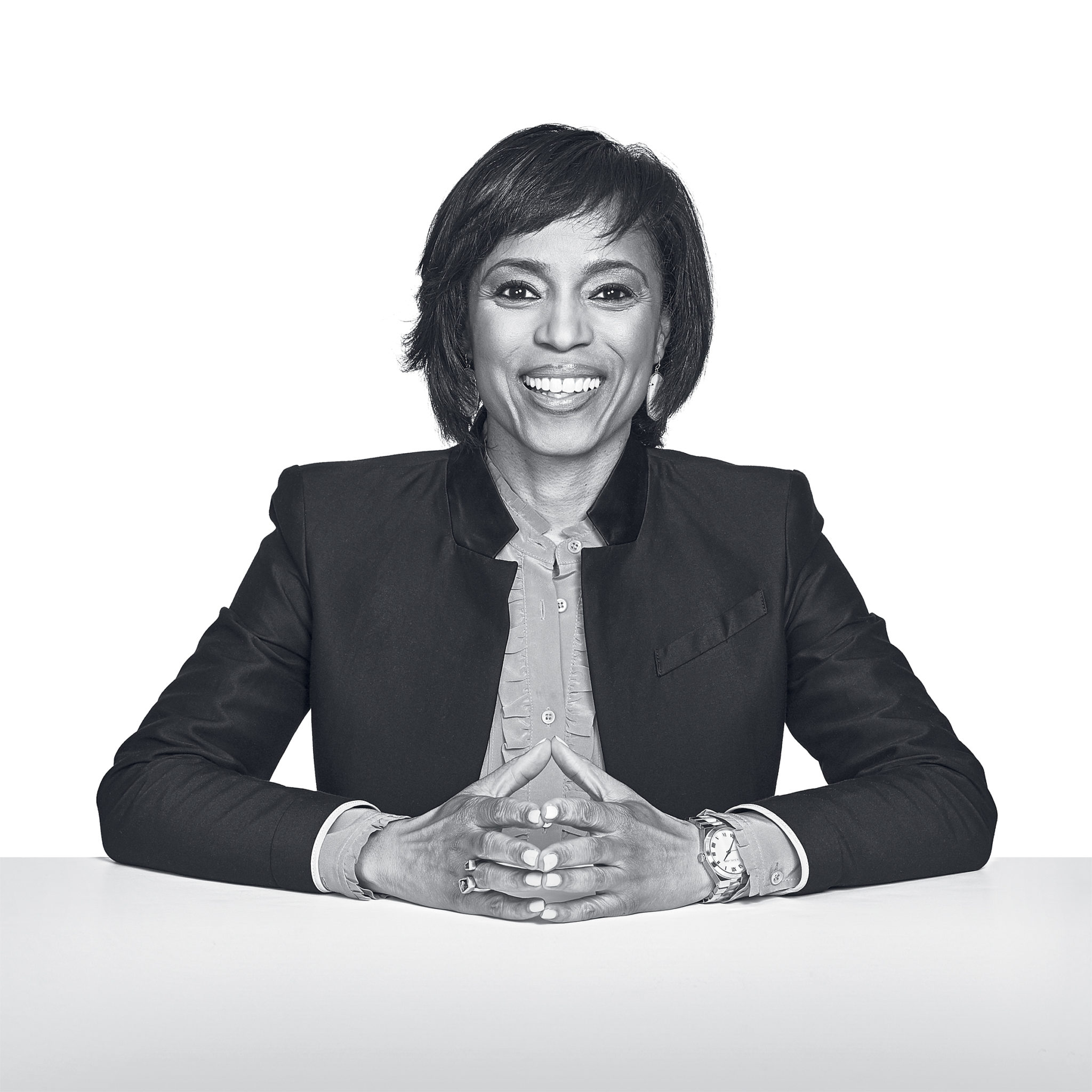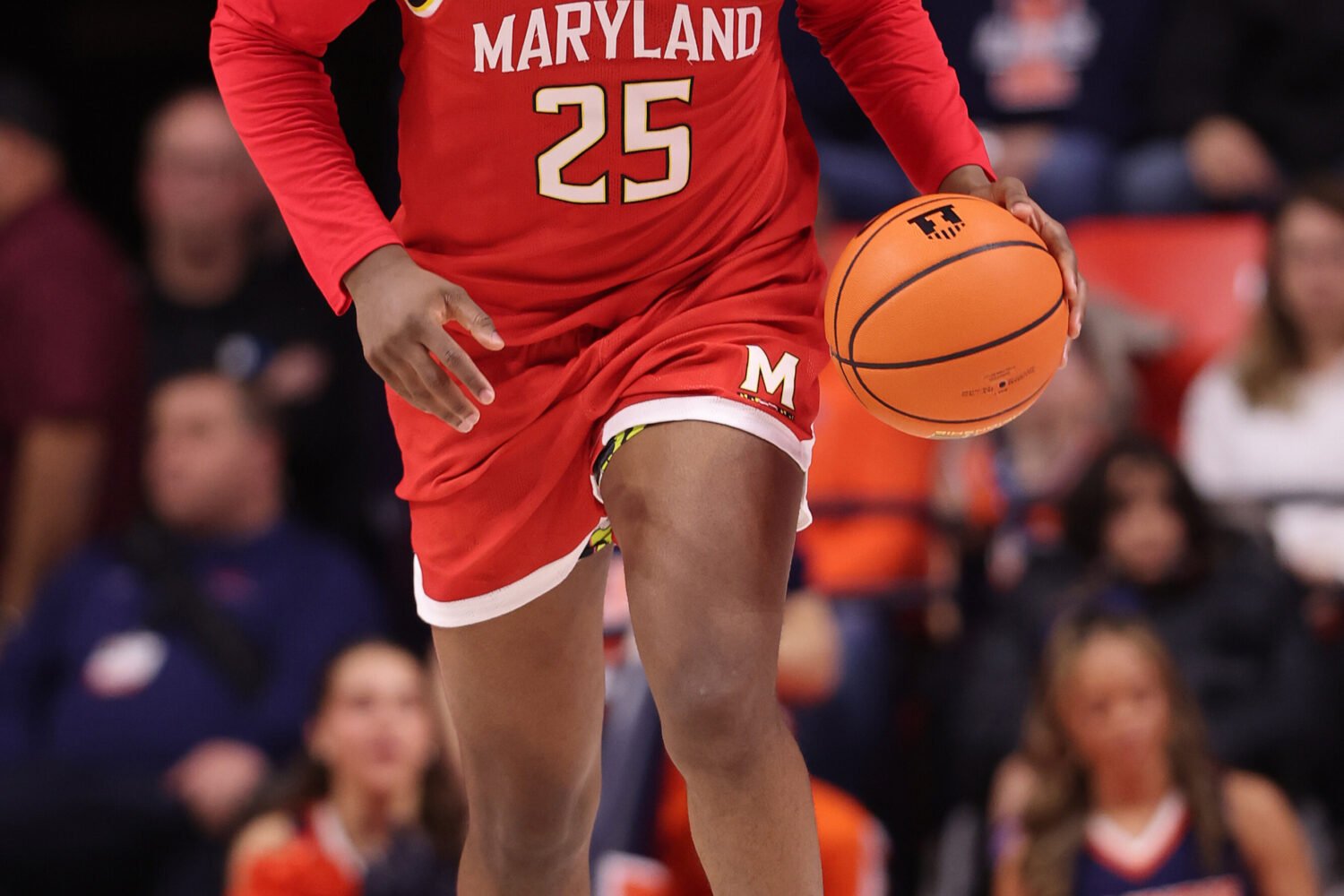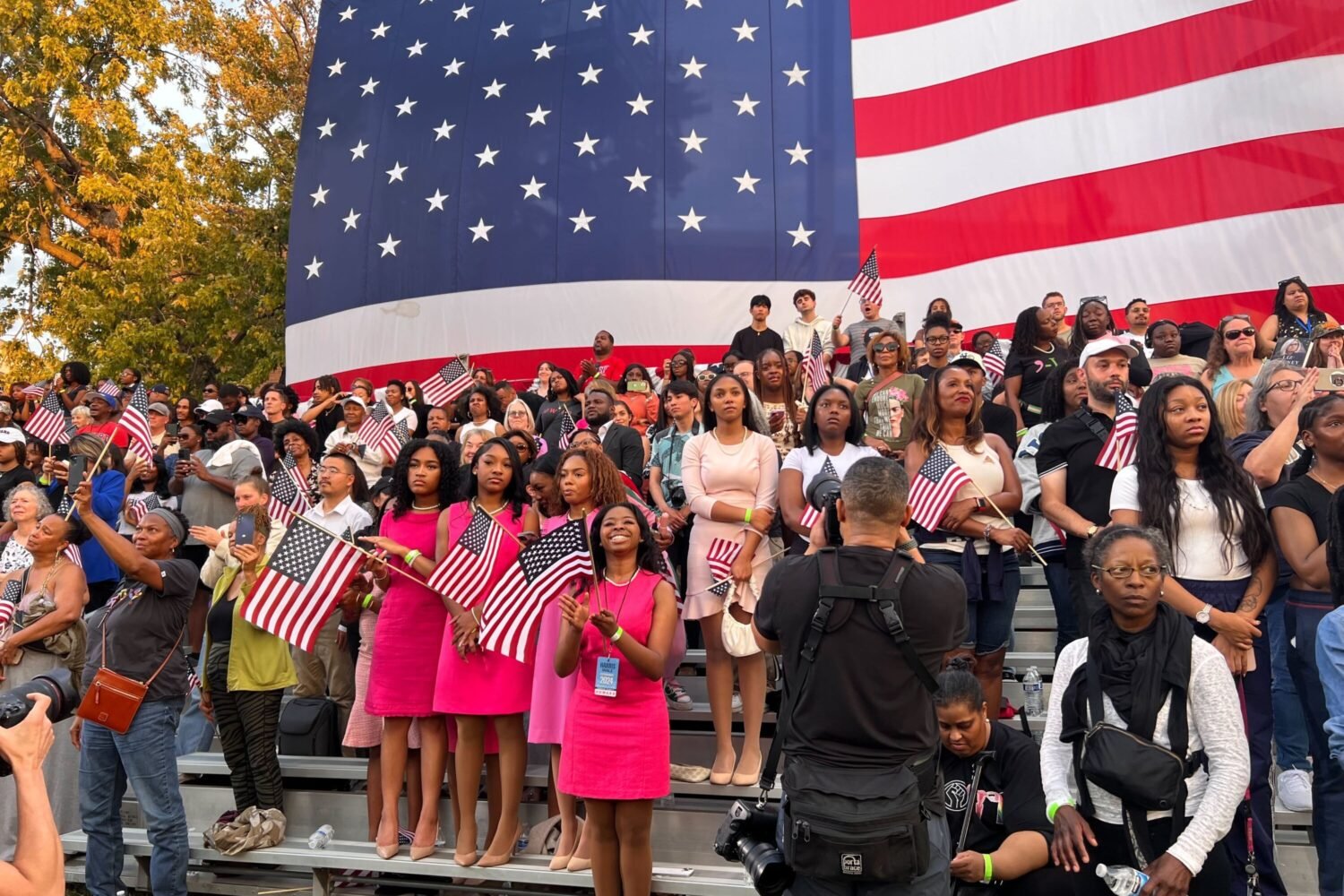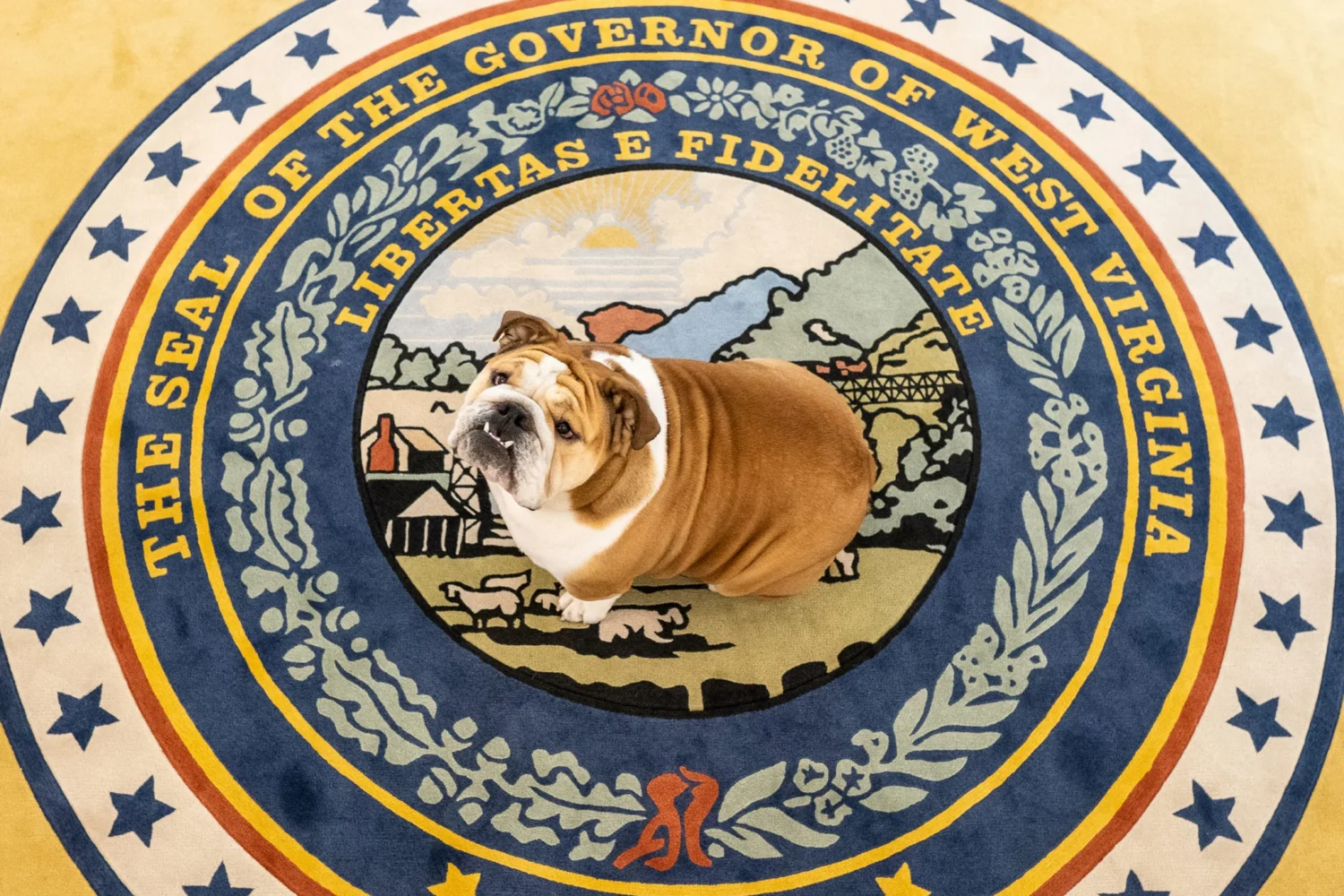Born in Suitland and raised in Camp Springs, Angela Alsobrooks grew up jumping double dutch in the cul-de-sacs of the county she now leads. After earning a law degree at the University of Maryland, she became the first prosecutor in Prince George’s County to focus full-time on domestic-violence cases, then got elected twice as the county’s state’s attorney.
So even though it’s a boilerplate line for a lot of politicians, when Alsobrooks says her work as Prince George’s county executive is “personal,” it’s easy to buy. “This is my home,” she says, sitting behind a cherry-wood desk in her art-filled Largo office. “When I see streets that have too much litter in them, I’m offended.”
Alsobrooks took office in December. Now the first woman to hold the position talks about running the county, the future of the Skins stadium, and why a prosecutor would make a great POTUS.
What was it like to grow up here?
I had a wonderful childhood. That’s the reason I love this county so much: I understand it, I know the people who are here, I understand them. I grew up with a very strong sense of community, in an area of the county that was very working-class, where people cared about you. And it’s never changed.
As state’s attorney, you actually went to crime scenes. You tried a couple of high-profile cases yourself, which the top prosecutor is not expected to do. Why was that your approach?
It was still personal, you know? The first case I tried was Richmond Phillips [a DC police officer convicted of killing his mistress and leaving their daughter in a hot car to die]. I have a daughter. The death of a child impacts all of us. I often went to the crime scene because I wanted to make sure I understood what I was fighting about. It wasn’t easy.
Being a prosecutor helped you understand some big problems. But how did it prepare you to figure out solutions?
We try to look beneath the crimes. For example, in cases where boyfriends murdered their girlfriends’ babies, we could walk away from that and say, “Wow, the mother left the baby [with the boyfriend]. That’s the end of it.” Instead, I said, “This is a single mother. Maybe there’s something we can do for parents who don’t earn a lot of money to have access to childcare that is licensed and safe.” So we started the Safe Childcare campaign. The other thing is I learned how to run an office, how to go out and get resources, how to collaborate and build relationships.
Speaking of prosecutors, Kamala Harris is in the 2020 race. Do you think a former prosecutor would make a good President?
Absolutely, and I know Kamala. When I ran for office the first time, I was going around saying, “There’s this woman, she wrote a book called Smart on Crime, I read about her in Essence magazine.” And I was talking about her Back on Track program. When I won, she called me. Someone told her I’d been talking about her. She helped me start my own Back on Track program [which diverts nonviolent, first-time felony drug dealers into career training]. When I ran for county executive, she sat down with me for two hours to help chart out the race.
Some Democrats could be turned off by Harris’s history of putting people behind bars. How should former prosecutors present themselves to voters in the era of Black Lives Matter?
From my own experience, people recognize fairness. Fairness means, for people who have been victimized, that we have to seek justice. But one of the most important responsibilities of a prosecutor is to prevent crime in the first place and prevent our children from ever seeing the criminal-justice system. In my office, we had prosecutors meet with individuals to help them remove from their record minor offenses that were keeping them from getting jobs. We started truancy-reduction programs. When people trust you, crime goes down. In Prince George’s, we have less crime and we’re arresting fewer people—that’s what successful policy looks like.
Rightly or wrongly, Prince George’s is often talked about as an underdog relative to the rest of Washington. What’s your response?
The perception that we suffer from a crime problem is just not true. We had a 50-percent cut in violent crime over the last eight years—that’s unheard of. In Maryland, we created more jobs than any other jurisdiction for the last five years consecutively. This is a strong, well-educated community. People who live here are fueling what happens in DC. We loan the District our workforce.
The Redskins have played at Landover’s FedExField for more than 20 years. Now that they’re looking to build a new stadium, is it important to keep them in the county?
Yes, we want the Redskins to be here. But we do not want to do so at the expense of our residents. In other words, we will negotiate with them, but we want to make sure there’s community input and the arrangement is mutually beneficial. We’re not going to use critical public dollars to finance a stadium, and any dollars we use would have to bring lots of benefits to the community. At a time when we need to invest in education, jobs, and health care, we’re not going to use those dollars in a way that doesn’t benefit citizens.
You’re just about six months into the job. How’s it going so far?
I balance the excitement against the fatigue, because this job does not end. I go to bed with it, I wake up with it. But so far, it’s going very well.
What about the job keeps you up?
There are so many people who worked hard for me to be here, and it’s just that pressure—that I really want to make a difference. I take all their concerns with me to bed at night.
How do you clear your head?
I’m a very spiritual person. I pray and meditate in the mornings. I work out with a trainer every Tuesday evening—I protect that time. I love spending time with my family and my daughter.
What do you think it means for young people to see a single mother in your position?
It means that if you work hard enough, everything is possible. I think that’s what my daughter now understands—that you succeed based on your efforts, based on your integrity. I hope they also see me as a person who cares about others’ success, as a person who’s constantly reaching back.
I hope it’s of no moment in a few years to elect a woman. I want to walk away from this position and have them say, wow, she was the best county executive we’ve ever had. Not just that she was a woman, but she did it better than anyone we’ve ever seen. Let’s find some more like her.
This article appears in the June 2019 issue of Washingtonian.











